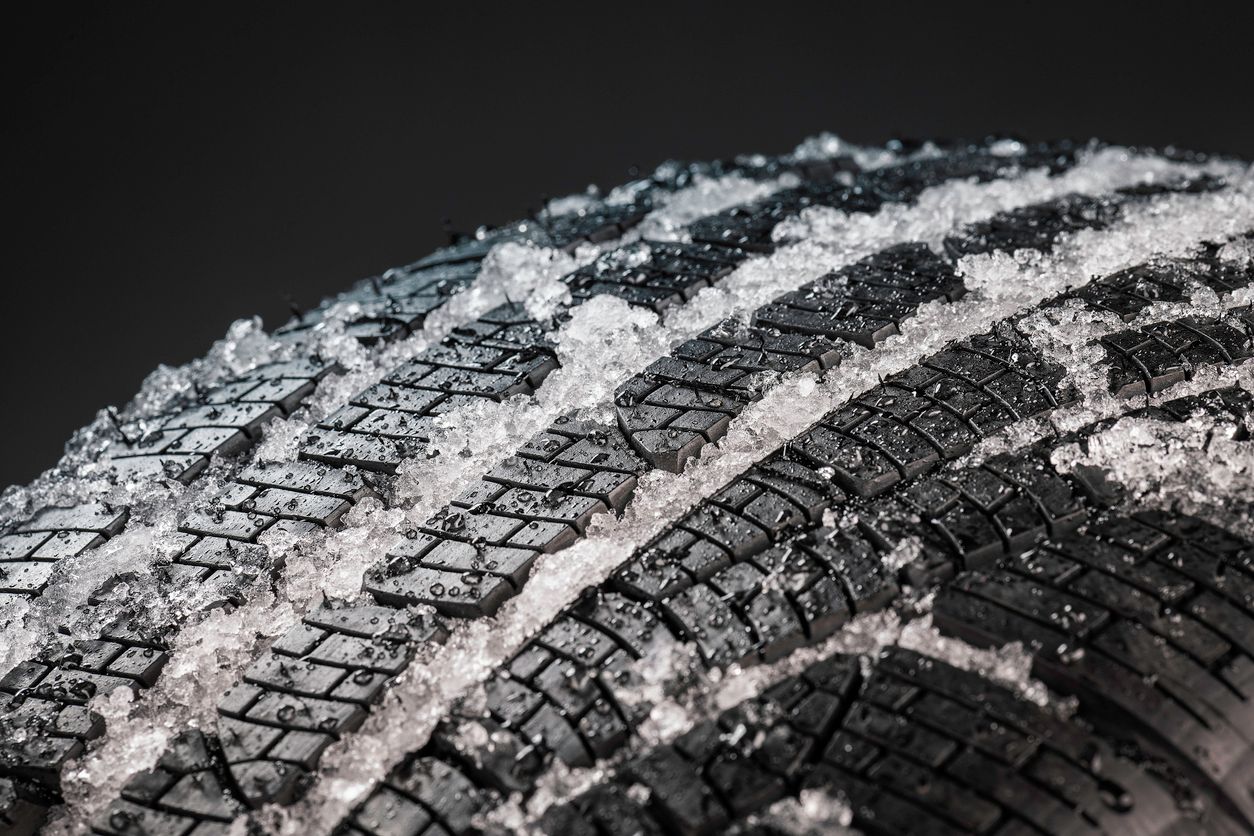Winter is here, which means, if you haven't already, it’s time to prioritize your tires! But when is the best time to switch, and how do you choose the right type for your ride? This guide will help you learn when to replace your tires for winter driving and at what temperature to make the switch.
What Temperature to Change to Winter Tires
So, when should you change to winter tires when living in an area that experiences severe winters? Consider switching before snow and ice hit to be prepared for inclement weather. Winter tires are specially designed to provide the traction you need on icy and snowy roads.
Why Replace Tires for Winter Driving?
Winter tires can help provide peace of mind for anyone driving in snowy or icy conditions. They stand out due to their specialized design and materials. Often, the tread is deeper and features unique patterns to grip snowy and icy surfaces. These tread patterns also include more sipes than a typical all-season tire. Sipes are small slits that enhance traction by biting into ice and packed snow.
Another crucial difference is the rubber composition of winter tires. Winter tires use rubber compounds that remain flexible in cold temperatures. These distinctions are why winter tires can outperform other options in severe winter conditions, often offering improved handling, braking, and overall performance.
If you live in a region with harsh winters, winter tires are not just a convenience—they may be a necessity.
Which Winter Tires Should You Choose?
So you’ve determined that winter tires are probably a good idea for your vehicle. But with so many options out there, which should you choose? Here are a few options to consider.
Best for Trucks: Bridgestone Blizzak LT and W965
Believe it or not, even heavy-duty trucks and SUVs need winter tires. The Bridgestone Blizzak LT is a light truck and commercial tire specifically engineered for heavy-duty winter performance. Add in its Rugged LT Compound that helps provide excellent snow and ice performance and wear, and you've got a winner for the winter roads ahead.
But Bridgestone doesn't stop there when it comes to winter tires. You might also want to consider the Blizzak W965 tire options too. Their aggressive tread blocks, sawtooth-biting edges, and overall durable construction offer impressive winter grip in wet, snow, and ice.
Best All-Around Winter Tires: Bridgestone Blizzak DM-V2 and WS90
If you want an all-around great winter tire you can depend on across all types of winter weather, look no further than the Blizzak DM-V2 tires for SUVs/CUVs, and WS90 for cars from Bridgestone. Both Blizzak DM-V2 and WS90 tires offer enhanced flex, grip, and bite in snow, sleet, and slush thanks to their unique nano pro-tech rubber and zig-zagging 3D sipes.
Plus, their high-tech multicell compound creates microscopic pores that cut through thin layers of water, helping to prevent hydroplaning and enhance grip on ice. In short, both of these tires will leave you prepared to handle whatever the season throws your way.
Best Year-Round Convenience: Bridgestone WeatherPeak or Firestone WeatherGrip
Since Firestone WeatherGrip and Bridgestone WeatherPeak tires aren’t strictly winter tires (though they do feature the three-peak mountain snowflake designation), they offer the convenience of being usable all year round.
These tires combine the comfort and value of a touring tire with upgraded weather technology for next-level traction and control — rain, light snow, or shine. If you don’t have to deal with extreme winter conditions and don’t want the hassle of having to switch tires each year, one of these options may be exactly what you need.
Winter Tire FAQs
Can I Get Just Two Winter Tires Installed?
It's tempting to save money by installing only two winter tires. But without a complete set, you can lose a significant amount of grip and steering control on the road. This won't just affect you; it can also put your passengers and other motorists at serious risk. In short, if winter tires are to be applied to the front axle of any vehicle, they must also be applied to the rear axle for safe operation.
Can You Use Winter Tires All Year?
Winter tires used in warm weather conditions may wear more rapidly. Switching back to summer or all-season tires when winter ends may help maintain the longevity of your winter set.
When to Switch Back to Summer or All-Season Tires?
As temperatures consistently rise above freezing and the forecast of more snow isn't likely, it’s time to switch back. Winter tires used in warm weather conditions may wear more rapidly.
Get Winter-Ready at Tires Plus
Preparing your vehicle for winter doesn’t have to be stressful. At Tires Plus, we’re here to help with everything from selecting the perfect winter tires to installation and maintenance. Our professional technicians can guide you to the right choice for your driving habits and local conditions.
Get the right tires for the right season by scheduling winter tire replacement at your local Tires Plus. We've got the tires and the professional services you need to get back on the road!



